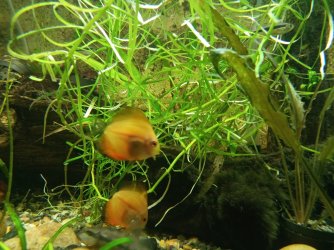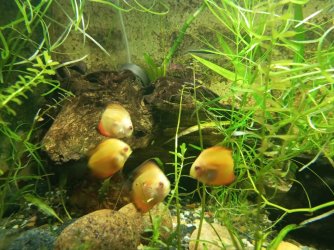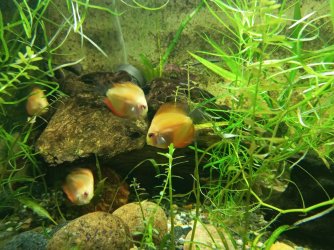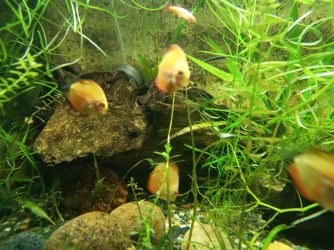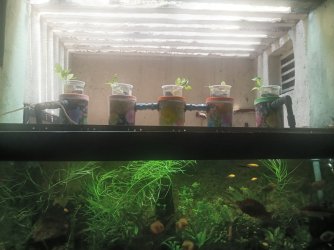Before I got into convincing my mind on discus it was a one fish, two fish ride with my friend and look out for a mid ground plant to face light the tank.
My friend loves discus and we saw a F1 grade red melon at The Fish Stop in Dehiwela. That interest me on reading and researching the following few days and made me get the discus juvis at a reasonable price.
So my friend told me to return the group since he was not convinced with the grade and I called up the breeder and he hung up on me.
Now the past 3 weeks have made me more interested in discus than I ever have been my whole life. . So thank you for not killing it for me and keeping the hobby alive.
. So thank you for not killing it for me and keeping the hobby alive.
My friend loves discus and we saw a F1 grade red melon at The Fish Stop in Dehiwela. That interest me on reading and researching the following few days and made me get the discus juvis at a reasonable price.
So my friend told me to return the group since he was not convinced with the grade and I called up the breeder and he hung up on me.
Now the past 3 weeks have made me more interested in discus than I ever have been my whole life.



